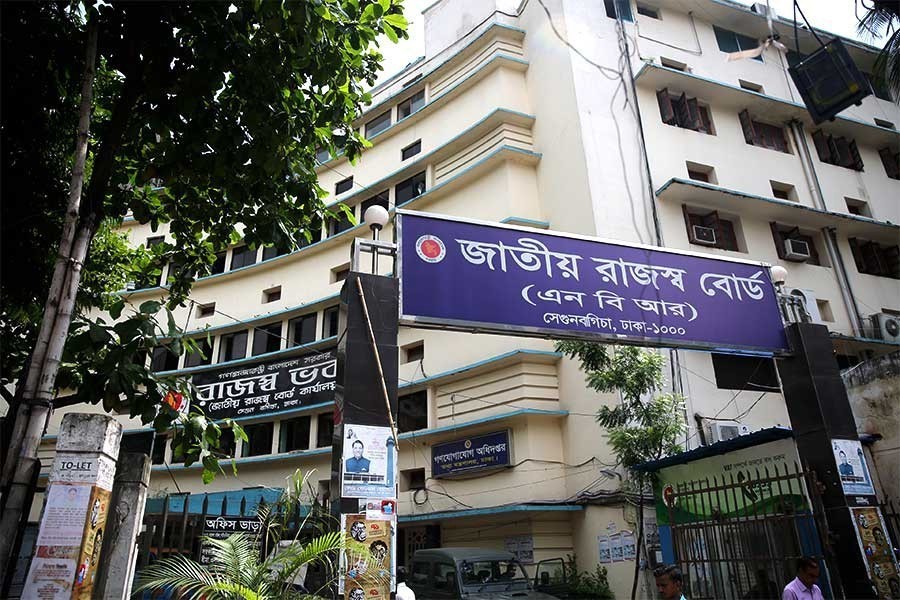As part of its policy to increase revenue income, the country's central tax authority, the National Board of Revenue (NBR), is learnt to have intensified its drive to widen the tax-net recently. As the outcomes of similar efforts taken in the past proved more or less effective towards achieving the annual revenue targets, it is believed that the current one drawing on past experience would see some positive results. Reportedly, the NBR field officers, according to the plan, would conduct tax surveys, do inspection and monitoring as well as collect taxes from potential taxpayers. Other steps to this end, it is learnt, would include carrying out internal surveys, which is about collecting tax-related data not directly from the taxpayers, but from secondary sources such as City Corporations, Rajdhani Unnayan Kartripakkha (Rajuk), sub-registrar's offices, to mention but a few. As such, by this means, the tax department hopes to collect secondary data about potential taxpayers even from upazila offices and thereby expand its tax net well into the rural background.
The entire exercise, as told by the tax authority, is being carried out with a view to raising the country's tax to GDP ratio, which is the lowest in South Asia at 10.7 per cent in the current fiscal, FY 2021-22. However, between 2016 and 2020, the said ratio, on an average, was 9.9 per cent. According to the World Economic Outlook, among other South Asian countries, the tax-GDP ratio during the mentioned period for neighbouring India was 19.67 per cent, while for Nepal it was 21.50 per cent. Whereas, for the developing countries, the ratio on an average was 24.72 per cent. Evidently, Bangladesh's performance in this regard has been rather poor. Against this background, the NBR's latest initiative is understandably an effort towards brightening up its image vis-à-vis other developing countries regarding tax to GDP ratio.
There is no denying the imperative of the tax department's present aggressive move towards including more individuals as potential taxpayers. While appreciating the effort, it is at the same time necessary to be extra careful so that the would-be taxpayers under no circumstances get scared about the drive. The NBR authority's directive to the tax commissioners to this effect to remove, what it said, 'phobia' about paying tax among the public is well-meant. What would be most important at this point is to make the tax regime more friendly towards the common taxpayers. But at the same time, the efforts should be on to bring the tax-dodgers from among the rich under the tax net.
On this score, the tax collectors in the field would be required to operate above board. That is for the simple reason that with their money and clout in the corridors of power, the rich are often able to slip through tax net. Since with the expansion of trade and industry, the number of the nouveau riche, who have immense potential as a revenue source, is on the increase, the tax authority should make the most of this opportunity. Obviously, this section of the population is also the highest contributor to the nation's GDP. So, the ongoing drive to increase tax-GDP ratio needs to take into especial consideration the new rich class as well as the tax evaders. Hopefully, with a well-conceived and skilfully-designed approach towards widening the tax net, the NBR will succeed in its current effort to significantly improve the country's tax-GDP ratio.


